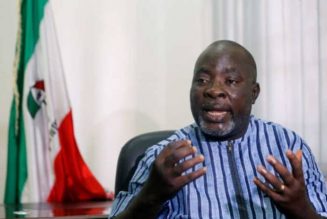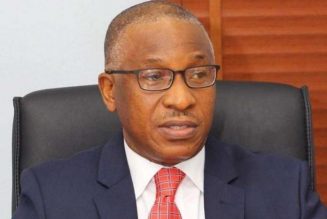
The Federal Government says its Social Housing Programme, one of the components of the National Economic Sustainability Plan (NESP), is targeted at low income earners.
Imeh Okon, Senior Special Assistant to the President on Infrastructure, who made this clarification on Tuesday in Abuja, said the scheme was not meant for politicians or highly placed persons.
The 300,000 social housing programme is a component of the NESP designed by the Vice President Yemi Osinbajo-led committee constituted by President Muhammadu Buhari to cushion the effects of COVID-19 on Nigerians.
She explained that one of the objectives of the administration was to provide houses for citizens across the country.
Okon said that the houses would be durable and of high quality not minding the low prices.
“It is a social housing programme basically for low income earners. We also sat back as a government and said we need to come up with a plan that will help us to cope and the plan was NESP.
“The programme identifies key sectors of the economy that we can create some sort of activities to boost the economy.
“Housing is very people oriented; we have a lot of artisans; a lot of people at the lower level that work in the housing sector, artisans, labourers that earn money on a daily basis.
“COVID-19 affected a lot of those people and the design of the programme is essentially working with those low income earners,” she said.
On his part, Femi Adewole, Managing Director and Chief Executive Officer of the Family Homes Fund (FHF), said that contrary to speculations in some quarters, the scheme was not meant for politicians or highly placed individuals.
Adewole said that the housing component of the NESP was conceived by the administration to shore up the housing deficit across the country.
He explained that for low income earners to benefit from the scheme, the FHF decided to partner with the Co-operative Federation of Nigeria, the body that oversaw all cooperative societies in Nigeria.
The managing director said that artisans like Keke riders, mechanics, and carpenters, among others were part of cooperatives and that they could acquire a one-bedroom for as low as N2 million.
According to him, they can pay for it over 15 to 25 years duration.
“The houses are cheap because there are concessions from different manufacturers as way of support to Federal Government.
“The land we are building on are given to us by the state governments and in some cases by the Cooperative.
“FHF homes are always accessible and infrastructures are made available, that is why we partner with state governments and Federal Government.’’
Adewole explained that measures were taken to ensure that the houses did not fall into the hands of those it was not intended for.
He said that BVN and mode of Identification would help reduce the abuse of those planning to cheat the programme from getting to the target population.
On affordability, he said that VAT and stamp duty would be looked into so as not to make the houses more expensive than stated.
“Individuals who do not belong to any cooperative can also apply through the portal www.nshp.gov.ng.
“Our relationship with the cooperatives is very simple yet very important, as we simply finance the developers; it is the cooperatives that would act as the mobilisers for the programme.
“Cooperatives would be the primary targets as they cut across major Nigerian works of life.
“Both the formal and informal sectors of the economy, from white collar to blue collar to the market women they would need to mobilise themselves before the houses are built,” he said.
More so, Tajudeen Ayeola, President, Co-operative Federation of Nigeria, said the union decided to partner with the government because of the sincerity of purpose behind the NSHP.
He said that the programme was different from other housing programmes by the government; hence the partnership.
“We have been granted access to monitor the building project and also access to the Vice President’s Office to lay complaints in case the building process or the houses does not meet up with the standards set.
“The 300,000 houses is just the first phase; we will proceed to the next level after that to meet up with the aim of this administration to house everyone.
“We have cooperative among majority of workers and individuals in Nigeria and our association has engaged a lot across all geopolitical zones of the nation,” he said.










